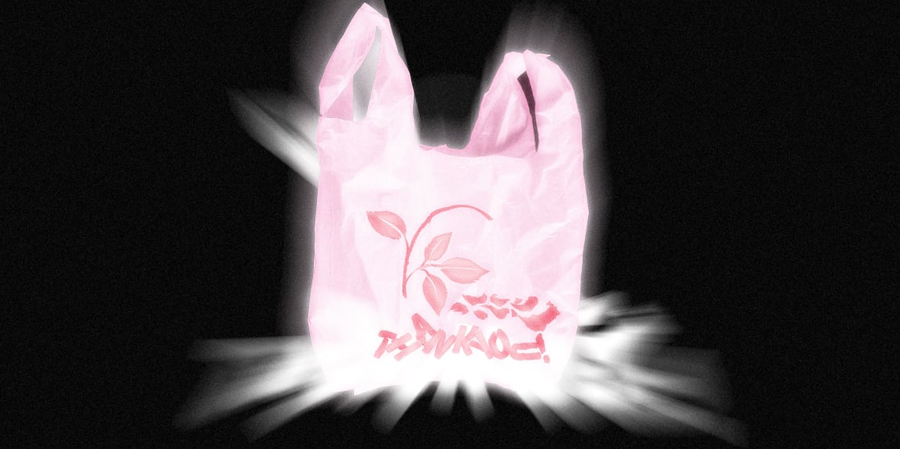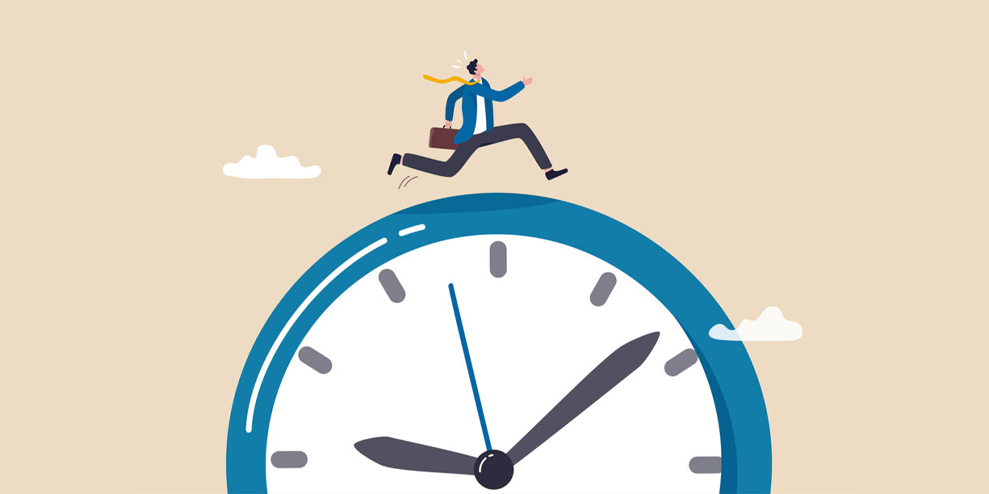A $15 million investment from the biggest names in retail has surfaced nine compelling alternatives to the single-use plastic bag.
Americans throw away 100 billion single-use plastic bags a year. And so in mid-2020, some of the country’s largest retailers—including Walmart, Target, Kroger, and CVS—teamed up on the Beyond the Bag Initiative. It was an ambitious plan to fund and scale replacements to the plastic bag.
Today, the project announced nine winners out of hundreds of entries from around the world. The solutions range from biodegradable bags that are meant to disappear into the Earth’s soil, to internet-connected bags that gamify reuse. And while the variety may sound like a cop-out—where is our one perfect replacement for the plastic bag?—our retail economy is a lot more complicated than ever before.
“There is no one answer, no one-size-fits-all solution,” says Kate Daly, managing director of the Center for the Circular Economy at Closed Loop Partners, which coordinated the contest alongside the design firm IDEO. “With the partners we have on board, you could buy a soccer ball, groceries, packaged goods, a computer keyboard, any number of things that need to be carried home in a different way.”
And that’s not even considering that we need different packaging solutions for different contexts, such as curbside pickup or home delivery. On top of those issues, there is the weight of consumer expectations. A flimsy bag might be fine if you’re buying some produce at Kroger, but what if you’ve spent $500 on a dress from a department store, or you’re carrying hot pho home from a restaurant? For some of these contexts, a single-use plastic bag was never the right solution to begin with—which is why the winners include all sorts of alternatives that take different approaches to the same problem.
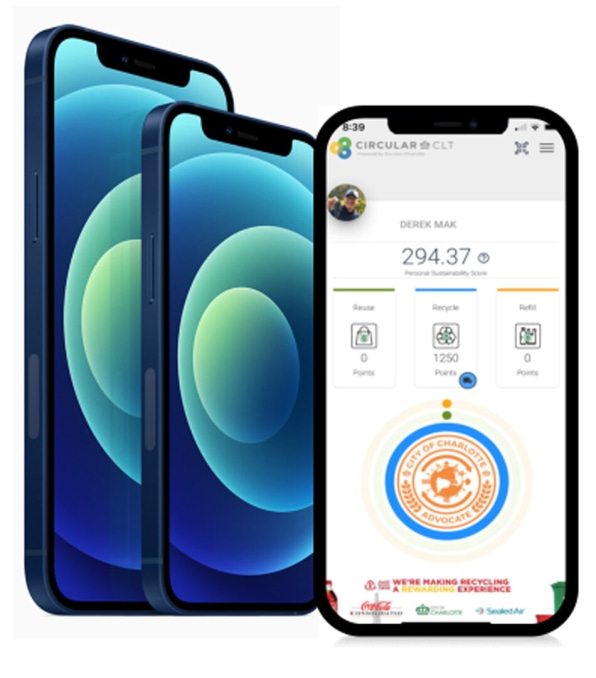
So what better ideas did the contest dig up? One interesting approach is called SmartC. It’s not just a new reusable bag (made from ethically sourced fibers), but an accompanying digital platform that transforms your reusable bag into a more precious object with a meaningful history. Any time you check out at a store, the clerk scans your bag with an onboard radio-frequency identification chip or QR Code. These scans go into an online dashboard that graphs your own dedicated reuse of the bag over time, as you score more points. The effect looks a lot like the Apple Watch’s daily activity tracker, but hopefully played out over the course of a bag you’d cherish and reuse for years.
Is the plan a little overwrought? For sure. We all have a lot to worry about in our lives, and the fate of a $1 bag can demand only so much of our attention! But in a world where we need to treat almost everything we own as less disposable than we do, it’s certainly an interesting approach to ponder.
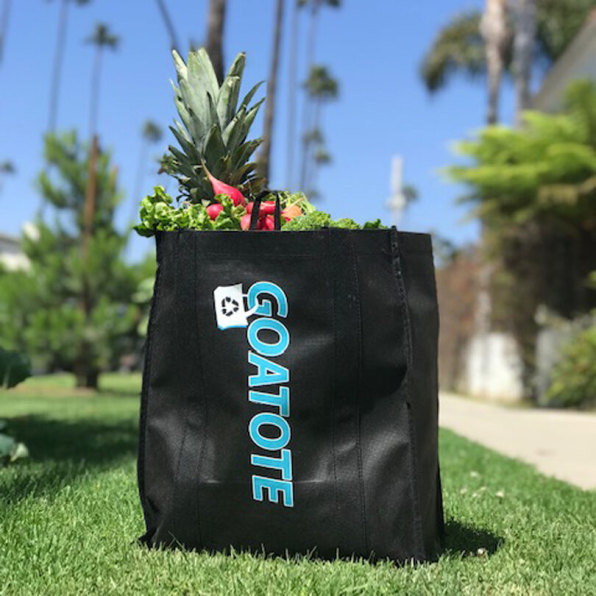
On the other end of the reuse spectrum, a recycled polypropylene bag called the Goatote doesn’t ask you to track the fate of your bag for years on end. Instead, it makes reusable bags feel more like disposable ones. Powered by a digital kiosk that would be set up at stores, the Goatote would be available for a monthly fee. You’d simply walk up and grab a few reusable bags when you need them—promising to return them in 30 days to be laundered for other customers.I cannot imagine paying a monthly fee just to use these very inexpensive bags, but as part of a retail subscription that I already pay for, like Walmart+, they could be an interesting perk. For anyone like me, who has a pantry overflowing with a variety of tote bags, the option to have reusable bags at my fingertips without the need to care for them is pretty attractive.
Aside from incentivizing reuse, the contest discovered all sorts of promising plastic alternatives. These new materials aim to make bags that are more in line with our bad one-time-use habits but don’t require a full 1,000 years to decompose like the plastic bags we use today. Winners include bags made from seaweed and agricultural waste. But the most surprising bag on the list is not a better plastic bag, but a better paper bag.
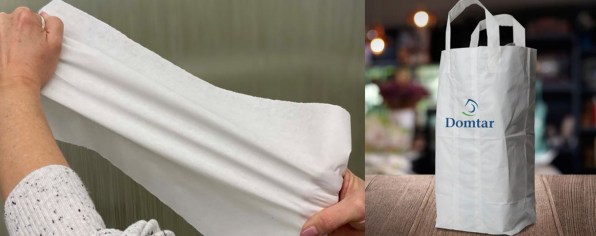
Made by the paper mill Domtar, it’s a 100% cellulose (or paper) bag that’s far more impressive than the old grocery store bags you know. That’s because it’s stretchy and puncture-resistant. The bag simply doesn’t tear with the slightest mishandling like the brown paper bags of today—even though it weighs just half as much. What it all adds up to is a paper bag that has many of the benefits of plastic. Yet it’s durable enough to reuse, recyclable in the existing paper stream, and biodegradable over the long run.Now that the winners are announced, the nine companies will split the $1 million in prize money, while many will enter a six-month incubator with the Center for the Circular Economy to polish their designs and pilot them with the retail partners. (The accelerator is aimed at the younger, less-established companies in the mix, which is why not all companies participate.) So maybe, one day, you’ll actually see these bags at your local grocery or drugstore.
“Of course they get the prize money, but we’re really establishing a long-term relationship with them,” Daly says. “We see this opportunity to take the long view . . . not something that happens in a couple of weeks or months. There’s a lot of work to make sure we support a systemic transition from the single-use plastic bag.”

